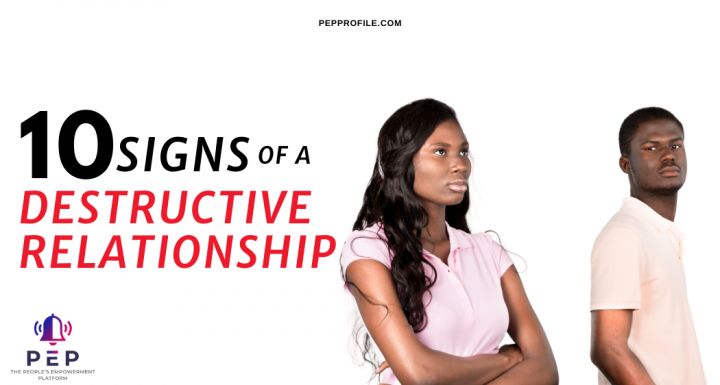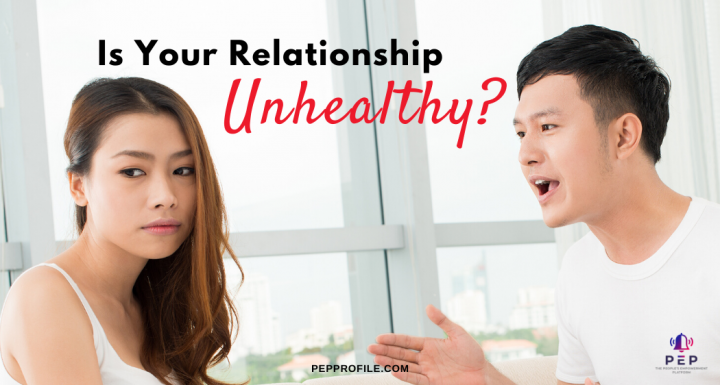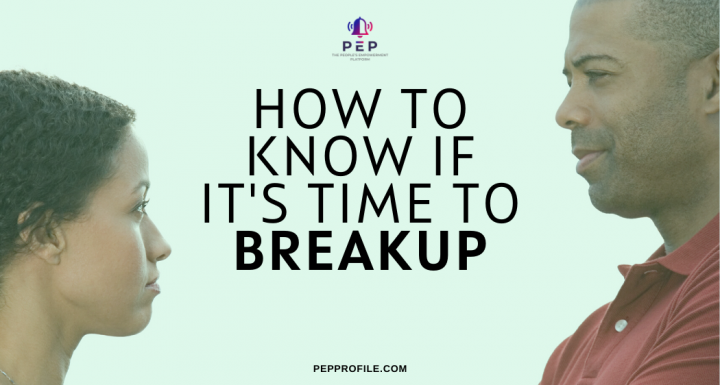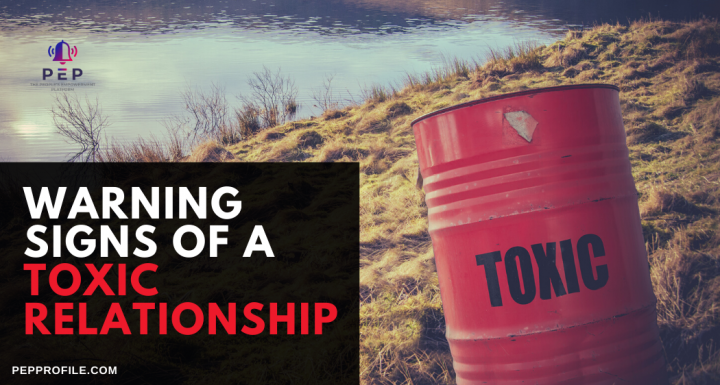Member Sign In
Login with email and password
No account yet? Register Now
I'm going to go over 10 indicators of a destructive and unhealthy relationship and I’m also going to talk about how I personally struggle with these issues to the point of being borderline abusive.
The long-term psychological effects of a destructive or unhealthy relationship are immeasurable. But many of us, including myself were raised in destructive, unhealthy and perhaps even abusive environments. And due to that conditioning we often don’t identify these traits as unhealthy or destructive when presented in our adult lives.
Relationships can be beautiful, motivating and they can stretch us to move out of our individual comfort zones. These relationships require mental maturity, time and commitment.
On the other hand, relationships can also be draining, toxic, stressful — sometimes abusive and permanently damaging. Ain’t nobody got time for that in 2020.

So today we will look at 10 things that can help you see the signs of an unhealthy relationship:
1. You Don’t Feel Safe Enough to Open Up
Dr Holly Parker of Harvard University explains that self-exposure is risky and scary but if received correctly, it can open the door to profound and fulfilling relationships. On the flipside, the risk of that vulnerability heightens the emotional backlash if your partner is impatient, insensitive to your vulnerability or unforgiving.
2. Your Partner is Dismissive of Your Interests and maybe even your social life
Healthy relationships allow for open minds where partners can do new things together. It can be oppressing when your partner is unwilling to try anything new, which can cause the relationship to become stale and unfulfilling.
3. Waiting for a Partner to Change
OR maybe your partner is waiting on you to change. People change only when they are ready to — sometimes even much longer after they are ready. This is not always their fault, changing is one of the most difficult parts of the human condition. It is unhealthy and frustrating for you to wait for a person to change who may never. On the other hand, it is also unhealthy for you to expect or pressure a person to change things about themselves that were there before you got into a relationship.
Healthy love is fostered in loving the actual person and not the ideas that you may have of them.
4. There is a Lack of Emotional Support
If you find that every time something important happens, whether good or bad, you immediately feel to tell someone that isn’t your partner, it may be a sign that person isn’t providing the emotional support you need.
5. Lying or Compulsive Lying
Sometimes lies occur more frequently after a breakdown in communication. A person may start to say things that are untrue to avoid unnecessary conflict.
This is especially so with couples that fight a lot and it’s also common amongst kids who have parents who overreact to things.
On the other hand, you or your partner may be telling lies in order to achieve your own means. Regardless, lies erode trust which is at the very foundation of healthy relationships.
When someone consistently lies to you, you’ll eventually tune them out. You may or may not be cordial but they leave no opportunity to build a bond due to there being no truthful foundation. And a lot of times they’re lying to keep the peace, be liked or accepted or because it’s easier.
And here’s what’s funny, it’s not always about the lies you tell someone. Same goes for someone who consistently lies to themselves.
There’s no foundation to build upon. That person will spend their lives never experiencing a deep and unconditional bond due to never having the courage self expose.
6. You’re Not Getting Enough Space
A relationship is an entity of itself outside of the two people involved. You and your partner should still have lives outside of each other, unless you're in quarantine.
You should also be supportive of each other’s activities. If a partner tries to make you give up activities because they cannot be a part of it, this can be controlling in certain situations.
Dr Terri Orbuch is a clinical psychologist and research professor that has been involved in a 25-year study that followed the lives of 373 married couples beginning in 1990. The study was entitled The Early Years of Marriage Project and unfortunately, 46% of those couples have since been divorced.
During her research, Dr Orbuch found that about 30% of spouses said they did not have enough privacy in their relationship. Furthermore, of those who reported being unhappy, about 12% said the reason was due to a lack of privacy.
On the other hand, if you are constantly and almost purposefully looking for things to do that exclude your partner, this may imply that there are deeper issues that you are running from.

7. A Lack of Meaningful Affection
Sometimes your demonstration of affection may have been meaningful in a previous relationship, but not necessarily meaningful to the person you’re currently with.
We often get caught up in this transferring of habits as we move from relationship to relationship. I’ve been with the same woman for five years, we’re raising two children together and honestly, I believe we’re just getting around to understanding one another’s true needs.
Partly because we were not clear on what they were or didn’t feel comfortable expressing them to one another which could be due to self-esteem issues or communication issues within the relationship.
If a person isn’t feeling heard by their partner or feeling judged they may not be comfortable expressing their specific needs as it relates to affection.
In the book “The Five Love Languages”, Dr Gary Chapman outlines the 5 ways to express and experience love between romantic partners. These include words of affirmation, physical touch, gifts, quality time and acts of service.
This is a major and common source of misunderstanding in relationships that can lead to an unhealthy frustration with a partner. For instance, you may be trying to work double time so that you can get your partner a gift, but they may have preferred you to have spent that quality time with them.
8. Fear of Being Single
An article posted in the Journal of Personality and Social Psychology in 2013, discussed the findings of over 7 studies surrounding the fear of being single.
All together, the three researchers concluded that the present work demonstrated that the fear of being single was a significant predictor in settling for less in romantic relationships, even after accounting for constructs typically examined in relationship research such as anxious attachment.
And anxious attachment runs deep because it starts early in childhood, usually because our primary caregivers are inconsistent in their style of care, or showing of affection or just inconsistent in making their child feel safe.
And it can go undiagnosed because parents often mistake their child’s anxious attachment for love.
This is from a really interesting write up titled: Understanding Insecure Anxious Attachment by Joyce Catlett, M.A.
Joyce goes onto explain how this anxious attachment manifests in adulthood.
Adults become self-critical. insecure, constantly seeking approval and reassurance but nothing works to relieve their self doubt. In relationships they’re often preoccupied with the idea of being dumped.
They rarely trust their partners. They tend to be clingy overly dependent and often assume the role of the pursuer. Again, this is often the byproduct of their primary caregiver’s inconsistency.
When I read this I was like, bitch you don’t know my life. You don’t know me. You don’t know my pain.

9. Codependency
Relationship experts Linda and Charlie Bloom describe codependence as “a stage where we lose ourselves in the other person”. Codependency is clinically defined as excessive emotional or psychological reliance on a partner, typically one who requires support on account of an illness or addiction.
That’s a whole new blog but feeling responsible for solving others’ problems before your own, constantly feeling used and under-appreciated, taking everything personally, being extremely manipulative, using guilt and shame to control people, constantly lying to to self to justify the partners bullshit. That’s most likely codependence.
When you’re trying to figure out why someone stays with a verbally or physically abusive partner, or puts everyone’s needs before their own, yet is horrible at asking for help — that’s called codependency. It’s common where I grew up. I knew women who equated being physically abused by their partners to a deeper love.
These are examples of the conditioning I mentioned earlier.
10. The Relationship is Borderline Abusive or Abusive.
Interrupting you while you talk, undermining your ideas and being unsupportive of your endeavors are all quiet assassinations of character, and can lead to self esteem issues that may take a long time to fix.
At the very extreme case it escalates to physical abuse. I don’t think I need to harp on this but if you are a victim of domestic violence please call the National Domestic Violence Hotline at 1−800−799−7233 for a referral to counseling services and support groups in your area.
Conclusion
So what to do? Do we just keep running from relationship to relationship, stay single or stay unfulfilled?
Therapist suggest we try to be honest with ourselves as possible, without being judgmental.
SO right here, right now let’s give it a shot. In being really honest with myself I am clearly guilty of:
#1. You Don’t Feel Safe Enough to Open Up I’ve been on both sides of this. Sharing my vulnerability with someone or them sharing it with me and not being responsible enough to identify it as an opportunity to connect and build a stronger bond.
So we respond with hostility or indifference or just undermine one another’s feelings , and that will cause some to withdraw emotionally. I’ve seen folks clam up for good after stuff like that.
#5. Lying or Compulsive Lying: I would lie and/or twist the truth from time to time to avoid conflict or even an energetic shift. I used to do that with my lady in the beginning as she was acclimating to my lifestyle. All the extra attention and people constantly intruding on our personal space and time.
But our deepest and most authentic bonding took place we got brutally honest with one another. We weren’t yelling and raising hell. We were just speaking our truths and really trying to hear one another out. Most uncomfortable 90 minutes of our relationship followed by the most fulfilling year of our relationship.
#8 Fear of Being Single: I don’t think I’ve ever been afraid to be alone. In fact, being alone comes a little too easy for me. But remember the whole part about anxiety attachment? Being extremely self-critical, constantly seeking approval and reassurance, and the fear of being dumped within your own relationship?
I’ve exhibited all of the above. I have had periods of being clingy, mistrusting and deeply insecure. I’ve dated people who were the same. The worst is when we were both like that.
Most of us are navigating through life completely oblivious to the fact that this behavior is not typical or healthy. It’s toxic and destructive.
And if these issues stem from your childhood — one relationship can seem fine and perfectly healthy and then a shift in dynamic can trigger all of these symptoms for years to come.
Listen I am not qualified to counsel any couple on relationship or marital affairs. After this discussion it is obvious I could use some counseling. But if you take any advice from a jackass, consider these words.
One of the most beneficial things I could have done to work through my anxious attachment issues was to date and befriend people who had developed healthier attachments with their parents, peers and pursuits and didn’t suffer from attachment anxiety.
They were great role models for me and set some examples that I took heed to and really applied to my life.
Back in the early 90s I befriended a woman who was way out of my league and had her own damn life but would always make it a priority to be in my life and to be my friend years before we began dating. She certainly contributed to my self esteem.
Another thing that really helped my self esteem issues and anxiety attachment was rhyme and reason. Trying to understand what made my parents the way they were and what influenced their destructive patterns helped a lot.
And as I got older I began understanding more about their upbringing and their parents upbringing and what was passed down generationally. I’d journal about it. And by being able to reverse engineer this generational dysfunction and gain objectivity, I felt less threatened, less hurt, as if I’d been empowered by the information. I think of it as Investigative journalism.
But the biggest part of that sequence was that it helped me better understand the difference between my desires and my “true needs” as it pertains to love
So when I choose a friend or lover, how they look on paper is not as important to me as how they live on purpose. How healthy is their relationship with their primary caregivers? What degree of love do they experience within their family?
What degree of love do they exude. How consistent are they? How graceful are they in conflict? How do they process and communicate pain? Because these are areas in which I need help and role models.

#3. Waiting for a Partner to Change - I have been guilty of this. I’ve dated people for their potential on numerous occasions. But being completely transparent, I spent a lot of time choosing people who weren’t self actualized so that I could help them and be regarded the hero/savior. Which is really just a form of control. An attempt at lessening the chance of abandonment.
Don’t get me wrong, I love helping people but doing so out of insecurity (whether consciously or subconsciously) is not authentic and hardly as fulfilling as helping people out of sheer kindness.
At this age I am STILL learning how to love and accept people EXACTLY as they are.
#12 The Relationship is Borderline Abusive or Abusive
My lady and I used to cut each other off a lot but we’ve gotten better. Doing this report we realized it is certainly an area of our relationship that needs improvement
One of the best things I found was a study that examined how adopting a future (vs. present)-oriented perspective can help during relationship conflicts.
It’s titled, "The Value of Prospective Reasoning for Close Relationships:”
Here’s a quote. ”Our study demonstrates that adopting a future-oriented perspective in the context of a relationship conflict -- reflecting on how one might feel a year from now -- may be a valuable coping tool for one's psychological happiness and relationship well-being,”
This is not to say that relationships are a bad thing. The point of this discussion is to help us objectively identify the state of our relationships so we can better discern where we may need help.
In the words of Roy T. Bennet, author of The Light in the Heart, you must:
“Accept yourself, love yourself, and keep moving forward. If you want to fly, you must give up what weighs you down”
This applies to so many things in our short and precious lives.
The road to healthy love is about addressing our trauma, figuring out how to to let go of some things that we may have done or that could have happened to us in the past, assessing our environment and moving towards situations that help us to heal, grow and honor our authentic selves.
REFERENCES:
Settling for Less Out of Fear of Being Single
https://www.researchgate.net/publication/257837688_Settling_for_Less_Out_of_Fear_of_Being_Single
Anxious Attachment: Understanding Insecure Anxious Attachment:
https://www.psychalive.org/understanding-ambivalent-anxious-attachment/
The Value of Prospective Reasoning for Close Relationships:
https://journals.sagepub.com/doi/10.1177/1948550616660591
The Danger of Self Protection In Relationships:
Behaviors That Ruin a Relationship
https://www.psychologytoday.com/ca/blog/compassion-matters/201608/7-behaviors-ruin-relationship
When to leave a relationship: 10 signs it’s time to move on:
https://ideapod.com/when-to-leave-a-relationship-10-signs-its-time-to-move-on/
5 Ways Relationships Are Bad for Your Health
https://www.livescience.com/35469-5-ways-relationships-are-bad-for-your-health.html
Forget sex, the secret to a long-lasting relationship is space: https://www.smh.com.au/lifestyle/forget-sex-the-secret-to-a-longlasting-relationship-is-space-20121105-28tle.html
Statistics: https://ncadv.org/statistics
Login with a social network